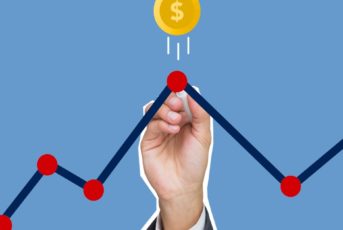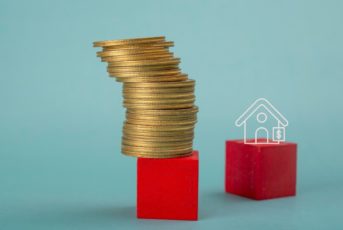Despite the recent gyrating stock market, the economy is still doing quite well based on many indicators. Since October 2018, the stock market is down over 10 percent and in some sectors down almost 20 percent. Does this mean we are entering a recession? A recession is technically defined as a period where Gross Domestic Product (GDP) declines in two consecutive quarters. GDP is the total revenues earned by a country for a given period of time. Based on the factors mentioned below, many of the current economic indicators do not point towards a recession in the near future. That’s not to say a recession will not occur at some point.
Economic Indicators
Economic Indicators are reports and ratios that help us understand the health of the economy. There are hundreds of indicators which are broken down into leading and lagging indicators. Examples of key leading indicators include the stock and bond markets, consumer confidence, new building permits, retail sales, inventory levels, and new business start-ups. Examples of key lagging indicators are unemployment, inflation, and GDP growth. While the stock market (leading) is signaling a declining economic cycle, it should not be the only indicator investors evaluate. In the short-term, the stock market is very erratic and overreacts to current events. Other economic indicators, however, are still very strong. Economic indicators are not accurate predictors of the future direction of the market, but they do help us gauge trends and cycles.
Cause of Volatility
Investors hate uncertainty. We are currently in the midst of a partial government shutdown, escalating trade war with China, future of interest rate hikes (or maybe cuts), and America’s beloved Apple stock falling from its tree. In the short-term, there are always hundreds of reasons to sell because the future economic outlook looks bleak. In reality, none of these short-term headline grabbing stories have a lasting impact on the overall economy. Despite recessions and depressions, the economy continues to grow over the long-term.
Don’t Forget the U.S. Consumer
Earlier we mentioned consumer confidence, retail sales, and unemployment as economic indicators. Using all three factors, the health of the economy remains strong. Unemployment is at an all-time low. It is very difficult for companies to hire talent and employees are demanding higher wages (i.e. inflation). The U.S. economy, as defined by GDP, is a consumer-driven economy. Consumer spending represents nearly 70 percent of GDP and consumers are continuing to spend. Retail sales are high and the 2018 holiday shopping season set new records. Most importantly, the spending is not debt driven as in the past. Consumers have lower debt levels and stronger balance sheets which means their spending is because of higher wages.
Early Signs
Everyone wants to know what the canary in the coal mine is: that a key indicator will tell us if economic conditions are deteriorating. As mentioned earlier, there are hundreds of economic indicators, some better than others, and each cannot be relied upon by itself. One key economic indicator to watch is the yield curve. The yield curve is an upwards sloping graph of the terms of interest rates. In a normal yield curve, interest rates are lower in the short-term and higher in the long-term. This is logical since investors will be expected to be compensated more for loaning their money at longer terms. When short-term interest rates rise because the Federal Reserve is rising rates, but long-term interest rates do not rise in tandem, this creates an inversion in the yield curve. Yield curve inversions have historically led to recessions/contractions in the economy.
Final Thoughts
Recessions are a natural part of the economic cycle. Therefore the question should not be if we are going to have a recession, but when. While the yield curve is currently flat and is close to inversion, it does not mean we are entering into a recession soon. In fact, the yield curve can remain flat for a long time before inverting or becoming normal again. Moreover, investors should look at many economic indicators as a whole when evaluating the health of the economy.
Ara Oghoorian, CFA, CFP®, CPA is the President & Founder of ACap Asset Management & ACap Accounting Services.
ACap Advisors & Accountants is a “Fee-Only” wealth management and full-service accounting firm headquartered in Los Angeles, CA specializing in helping doctors and healthcare professionals make sound financial decisions.
Contact ACap at info@acapam.com or 818-272-8511.









